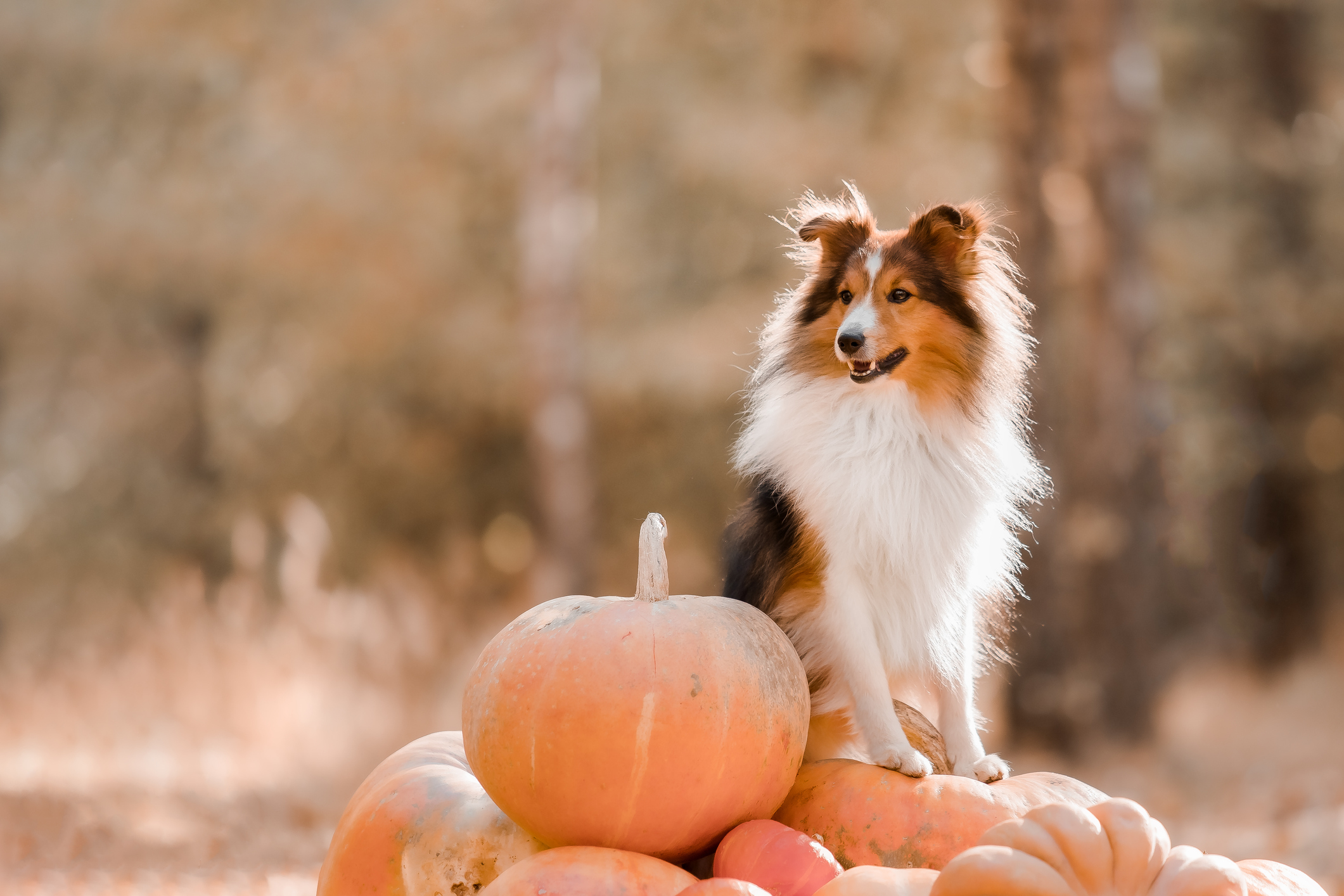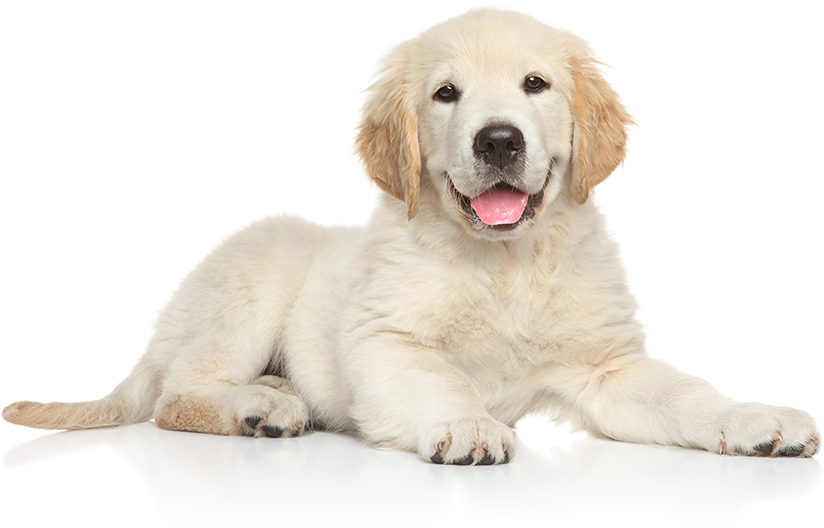
Nov 01, 2024 | By, For Pet's Sake
November pet safety: A recipe for a safe Thanksgiving and holiday season
As cold weather sets in and the holiday season begins, many changes come to our homes and routines. It’s definitely an exciting time of year, but it’s important to think about how these seasonal shifts affect our pets. Whether it’s being cautious with food during festive feasts or ensuring your pets are cozy as the temperature drops, there are many factors to consider to keep your pets safe and healthy.
Here are some essential pet safety tips to keep in mind, specifically in November and December:
- Thanksgiving food hazards
Thanksgiving is a time for gathering with family and indulging in delicious meals, but many foods that are staples of the holiday table can be dangerous for pets. Not only should you avoid giving the following foods to your pets, but you should also stay vigilant to make sure nothing drops on the floor or is too close to the edge to allow your pets to grab something themselves.
- Turkey bones and skin: While plain, cooked turkey meat is safe in moderation, turkey skin is fatty and can lead to pancreatitis. Bones can splinter and cause choking, blockages, or internal injuries.
- Stuffing and gravy: Many stuffing recipes include onions, garlic, or other seasonings that are toxic to pets, especially dogs. Similarly, rich gravies can cause digestive upset or even more severe issues like pancreatitis.
- Mashed potatoes: If your mashed potatoes contain butter, cream, or garlic, they should be kept away from your pet. Raw potatoes are also off-limits because they contain a toxic compound called solanine.
- Chocolate and desserts: Chocolate is toxic to both dogs and cats, and many desserts contain artificial sweeteners like xylitol, which can be deadly. Keep all sugary foods out of reach.
It’s not all bad news though. Some foods are okay for your pet to enjoy, in moderation of course.
- Cooked, unseasoned turkey: In moderation, plain, boneless turkey meat can be a nice treat.
- Vegetables: Carrots, green beans, and cooked sweet potatoes (without added butter or seasoning) are safe and healthy options.
- Pumpkin: Plain, canned pumpkin (not the spiced pie filling) can aid digestion and be a tasty snack.
If you’re hosting guests, educate them about these dietary limitations too.
- Holiday decorations
November also signals the start of holiday decorating, which can be fun and festive but also hazardous to pets if not done safely.
Be aware of the following dangers as you deck the halls:
- Candles: Open flames can easily be knocked over by curious pets, leading to burns or even house fires. Opt for flameless candles, or ensure pets are kept away from lit candles.
- Electrical cords: Pets, especially puppies and kittens, may be tempted to chew on exposed electrical cords. Consider using cord protectors and unplugging cords when not in use.
- Tinsel and ribbons: These shiny objects may be enticing for cats, but if swallowed, they can cause severe intestinal blockages. Keep tinsel and ribbons out of reach.
- Holiday plants: Some festive plants, like poinsettias, mistletoe, and holly, are toxic to pets if ingested. Keep them away from pets, or consider using pet-safe artificial alternatives.
- Cold weather considerations
Adjust your pet’s care routine to account for the colder weather, especially if you live in an area that experiences freezing temperatures or snow. Winterizing your pet isn’t just about putting a cute coat on them. You’ll need to prepare indoors and outdoors to make sure your pets are cozy at this time of year.
- Limit time outside: Small, short-haired, or older animals should not be left outside for long periods in cold weather. Even young and athletic breeds should have their walks and outdoor time limited.
- Provide extra warmth: If your pet sleeps in an area prone to drafts, consider adding extra blankets or moving their bed to a warmer spot. Some pets, especially smaller breeds, may benefit from a pet sweater or coat, even if they’re inside most of the time.
- Check paws: After walks, check your pet’s paws for snow, ice, or salt. Salt and de-icing chemicals can irritate their paws and be toxic if licked off. Use pet-safe ice melt in your yard, and wipe down their paws when they come inside.
- Hydration and nutrition: Make sure your pet stays hydrated, as cold, dry air can lead to dehydration. You may also need to adjust your pet’s food intake if they are less active during the winter months.
- Fireplace and heater safety
Pets are drawn to the warmth of a fire or heater just as much as we are. However, both open flames and machines can pose risks to animals.
- Fireplace screens: If you have a wood-burning or gas fireplace, use a protective screen to prevent your pet from getting too close to the fire.
- Space heaters: Make sure space heaters are placed in areas where pets can’t knock them over. Some models have automatic shut-off features in case of tipping, which is ideal for pet owners.
- Routine adjustments for less daylight
The sun sets earlier now, so walks and outdoor playtime may take place in the dark. Take extra precautions during early morning or evening hours.
- Reflective gear: Both you and your pet should wear reflective gear to ensure visibility to drivers, cyclists, and other pedestrians. You can also buy a light to put on your pet’s collar.
- Leashes: In low-light conditions, always keep your pet on a leash to prevent accidents and avoid them wandering into dangerous areas.
The combination of colder weather, holiday celebrations, and changes in routine should send pet safety to the top of your mind. It might sound like a lot, but just like many other endeavors during this time of year, the extra effort is worth the experience in the end. By making just a few adjustments, you can ensure that your pet’s holidays are festive, fun, and free of danger!
Have a question about pet health? Want to become the best possible pet parent? Find helpful tips, reminders, and insight to giving your furry friend the best possible care with For Pet’s Sake! Learn more at drdevonsmith.com.

